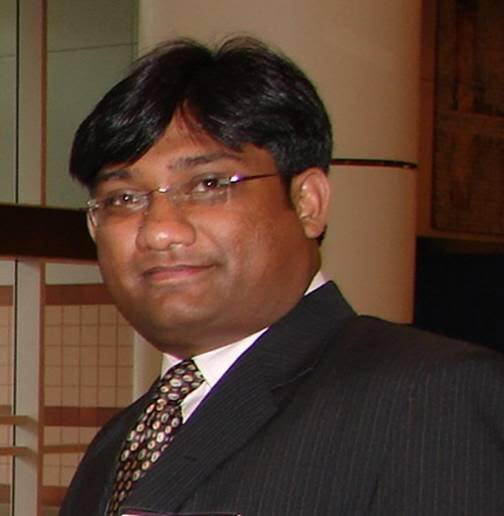 Prof. Nitesh Bansal
Prof. Nitesh Bansal
One of the important things we have learnt from this microscopic crown like giant – the COVID-19 – is that, by not shaking hands we can reduce the transmission and affliction by this virus drastically and, thus must avoid it. It is noteworthy that in this era of the corona pandemic, many powerful world leaders have been seen greeting others in the traditional Indian way of greeting each other – ‘Namaste’.
It is paramount, in my opinion that we, that is Indians start acknowledging our very own rich, ancient cultural values, traditions and their benefits. Interestingly, Indians always depend on the western world to validate the power of our traditions and inform us as to how strong and valuable our traditions are, be it Yoga or Ayurveda. This is not the first time that the entire world has not adopted the solutions generated by the Indian intellect. Technological and scientific advances in broad spectrum of subjects from rocket technology, to AI, to health sciences, to economics, to financial systems across the world have been led by Indians – we are on the frontiers of innovation and novel idea generation.
Paradoxically, the origin of the ‘handshake’ can be dated back to 5th Century BC, where it was considered as a symbol of showing peace by the waring soldiers as could not conceal weapons in an open palm. In modern times, it has become a way of greeting each other (both upon meeting & parting), and also as an expression of one’s gratitude. Interestingly, different countries/cultures seem to have different beliefs attached to the ‘handshake’. In some countries only men can shake hands, while in some others it is customary to shake lady’s hand first. In some countries, a soft handshake is considered as polite, while in others, a firm handshake is a symbol of being confident and powerful. Interestingly, the handshake is also said to be used as a ‘do not disturb sign’ in some parts of Africa. Accordingly, a third person is not supposed to enter an existing conversation until two persons are still holding each other’s hand. Unfortunately, regardless of its symbolism, it is one of the most significant means of disease transmission and infection.
Also read: India needs to be highly alert with the advent of the novel coronavirus
‘Namaste’ – which is a combination of two Sanskrit words ‘namas’ and ‘te’. This action means that the doer symbolically bows to the ‘humility’ in the person it is directed towards. ‘Namaste’ or ‘I bow to you’ has its origin in ancient Vedic literature (1500 BCE), and has been referenced multiple time in several texts. This is used to show respect and actually refers to inner divine strength of an individual. This gesture is also referred to as ‘Namaskar’ in some parts of India. The ‘Anjali Mudra’ is another way to describe ‘namaste’ and is considered a symbol of respect and worship not only in India, but also many other Asian countries. It is performed by holding one’s palms lightly pressed against each other, with fingers together, pointing upwards, at the level of heart ‘chakra’ (with thumbs resting on sternum) directly towards the person it is directed towards. While it also helps relieve stress and improve concentration, it now also helps protect us from receiving or transmitting all types of diseases – including the ones caused by COVID – 19.
While we have already seen top world leaders, including the royals of England, to POTUS Trump, President Macron, Chancellor Angela Markel, to Prime Minister Netanyahu, all using ‘Namaste’ – this powerful, non-contact method gesture to greet each one and another, it is the time that we all make it a part of our lives as well. This will not only save us from COVID-19, but also from many other common diseases, which are spread via close contact. These diseases may not be fatal to all, but they all have a detrimental effect on health, and consequently on our efficiency and capacity to perform our respective duties. It may be difficult to calculate the overall economic loss to society but society but avoiding such spread of disease will help save a huge amount of resources and efforts of our healthcare team. A reduction in even one (1) percent of the number of such cases, will help channelize resources to others that require them the most.
So let us once again lead the world & greet the world by saying NAMASTE !
Prof. Nitesh Bansal is Registrar of Rishihood University & Honorary Secretary of Society of Indian Physiotherapists.
The views, thoughts, and opinions expressed in the article belong solely to the author, and not necessarily reflect the views, thoughts, and opinions of EducationWorld.


























